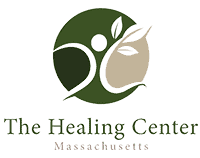At The Healing Center in Stoughton, MA, our Life Skills Program is an essential part of the recovery process, designed to help individuals rebuild independence and confidence as they transition out of active treatment. Addiction can often disrupt a person’s ability to manage daily responsibilities, form healthy routines, or maintain meaningful relationships. Our Life Skills Program addresses these challenges by teaching practical tools for everyday living—helping clients restore structure and stability in their lives.
Through hands-on training, group workshops, and individualized support, participants learn critical skills such as budgeting, time management, job readiness, communication, and personal wellness. These life skills not only support long-term sobriety but also foster self-esteem, accountability, and emotional resilience. At The Healing Center, we believe recovery is about more than abstinence—it’s about equipping individuals with the tools to thrive in their personal, professional, and social lives beyond treatment.
The Importance of Life Skills In Addiction Treatment & Recovery
Life skills play a vital role in the recovery process, serving as the building blocks for a stable, independent, and fulfilling life after addiction. Many individuals struggling with substance use disorders experience disruptions in key areas of daily living—such as managing finances, maintaining healthy routines, or communicating effectively. Addiction can consume a person’s time, energy, and focus, often leaving them ill-equipped to handle the demands of everyday life once they enter sobriety. Life skills training helps bridge this gap by teaching practical tools that support long-term recovery and personal growth.
One of the most important aspects of life skills development is fostering structure and routine, which are essential for maintaining sobriety. Learning how to manage time, keep commitments, and establish healthy habits gives individuals a sense of order and predictability in their daily lives. This structured outpatient program can reduce stress and anxiety—two common relapse triggers—while promoting accountability and self-discipline. Whether it’s planning meals, attending appointments, or managing a job search, these skills empower individuals to take control of their responsibilities with confidence.
Equally important are social and emotional skills, such as conflict resolution, effective communication, and boundary setting. Recovery often involves repairing strained relationships or building new, healthier ones. By developing interpersonal skills, individuals can form supportive connections, ask for help when needed, and navigate challenges without resorting to old coping mechanisms. These abilities not only strengthen personal relationships but also improve self-esteem and emotional resilience—critical factors in preventing relapse and sustaining wellness.
At The Healing Center in Stoughton, MA, our Life Skills Program is integrated into each client’s personalized treatment plan. We believe that recovery extends beyond medication management and intensive therapies—it’s about helping individuals gain the tools they need to thrive in the real world. Through hands-on workshops, one-on-one coaching, and group learning, clients build a foundation of practical and emotional skills that support their long-term success. With the right guidance and support, life skills training becomes a powerful component of transformation and empowerment in the recovery journey.


How Life Skills Programs Reduce The Risk of Relapse
Life skills programs significantly reduce the risk of relapse by equipping individuals with the practical and emotional tools needed for everyday life. Studies have shown that life skills training enhances relapse prevention. For example, a clinical study involving adults with substance use disorders found that participants who received structured life skills interventions demonstrated significantly lower relapse rates compared to those who didn’t—results remained robust at 1-month follow-up (p < 0.001). By focusing on skills such as self-control, problem-solving, and emotional resilience, these programs help individuals manage stress and avoid turning to substances during tough times .
In addition to reducing relapse, life skills training strengthens emotional well-being and self-efficacy. A review of digital life skills programs that is published on the National Library of Medicine revealed that participants had 33% lower odds of regular tobacco use 18 months post-intervention (OR 0.67; 95% CI 0.47–0.96) Another study in adolescent preventive care showed a 21–33% reduction in initiation of tobacco, alcohol, and marijuana use after multi-year life skills programs. While these examples involve preventive contexts, their insights extend to individuals in recovery by demonstrating how enhanced self-regulation and decision-making deeply influence substance use behaviors.
Beyond statistical outcomes, life skills programs foster long-term recovery by promoting independence, resilience, and social connection. Research highlights that improving self-awareness and interpersonal capacities directly supports relapse prevention—clients feel more capable of navigating triggers and stress without reverting to substance use. Together, these findings underscore that life skills training is not just an add-on—it’s a vital component of comprehensive addiction recovery, helping individuals build a stable foundation for well-being and sustained sobriety.
What Our Life Skills and Career Development Program in MA Offers
At The Healing Center, our Life Skills Program in Stoughton, MA is designed to help individuals in recovery rebuild confidence, independence, and stability as they prepare for life beyond treatment. We recognize that addiction often disrupts essential daily living skills and employment readiness, leaving individuals feeling uncertain about their future. Our day treatment programs bridge that gap by offering a structured environment where clients can develop practical tools and personal growth strategies to support long-term sobriety and success.
Our Life Skills component focuses on core areas such as time management, financial literacy, nutrition and wellness, communication, goal setting, and self-care. These skills are taught through interactive workshops, one-on-one coaching, and group support sessions—giving clients the opportunity to apply what they’ve learned in real-life scenarios. We also emphasize emotional regulation and healthy relationships, helping individuals rebuild trust with themselves and others.
In addition, our Career Development services are tailored to meet clients where they are in their professional journey. Whether re-entering the workforce or pursuing new goals, clients receive guidance in resume building, job searching, interview preparation, and workplace etiquette. We also assist with identifying strengths, exploring career interests, and connecting with vocational resources. At The Healing Center, our goal is to empower individuals with the confidence and skills needed to thrive both personally and professionally—well beyond the walls of treatment.

Request a Confidential Callback

Skills Our Clients Learn
To help our clients successfully transition into a life of independence, our life skills program in Stoughton, MA offers an abundance of different sessions, focusing on training and educational programs in area such as:
- Time Management – By learning how to manage time clients can learn to use time productively. Having poor time management skills creates a stressful environment. These feelings can be triggering when a person is new in recovery and still navigating how to live life without substances.
- Credit Building and Financial Literacy – Having the ability to manage their money, and think about investments and credit, can help our clients to learn how to be financially stable. Financial struggles are a major factor in relapse for individuals in early recovery.
- Stress Management – There are coping mechanisms, and different ways of handling stressful situations to help people in early recovery successfully make it through without relapse. Knowing these tools helps on the road to success.
- Creating and Maintaining Healthy Routines – Chaos and uncertainty lead to too much time available for poor choices. Having a healthy routine can fill time, and leave less room for a person to make the mistake of going back to what brought them to recovery in the first place.
- Nutritional Planning/Education – Knowing what is right and wrong to put into the body is important. Different foods cause different feelings, good and bad. A healthy, balanced diet can help to maintain a positive mindset, while more greasy and fatty foods can make a person feel sluggish and less positive. That positive mindset is vital when battling thoughts of relapse.
Does Insurance Cover Our Life Skills Program in Stoughton for Addiction Recovery?
Insurance coverage for life skills programs during addiction recovery can vary depending on the specifics of your plan and how the services are billed. Most insurance providers—including private, employer-sponsored, and TRICARE—must follow the Mental Health Parity and Addiction Equity Act (MHPAEA), meaning they cannot impose stricter limits on mental health and substance use services than on physical health care. In practice, life skills training is often included as part of a broader, clinically necessary treatment plan, such as an Intensive Outpatient Program (IOP) or day programs, which are typically covered in full or in-part.
At The Healing Center in Stoughton, MA, our Life Skills and Career Development Program is fully integrated into our addiction treatment continuum—including day treatment, IOP, and outpatient care. Because these programs combine life skills with evidence-based therapies like CBT, trauma-informed care, and relapse prevention, they are most often covered under standard addiction treatment benefits. In-network clients with insurance providers such as Aetna, Blue Cross Blue Shield, Cigna, Humana, and ValueOptions typically experience limited out-of-pocket expenses and fewer administrative barriers.
To confirm coverage, we recommend:
- Verify benefits directly with your insurance company or our admissions team—provide your plan details to check that our life skills program is included under your coverage.
- Ensure medical necessity has been established; life skills training is most likely to be covered when deemed essential to your treatment goals.
- Use in-network services to reduce costs and streamline benefit approval.
- Understand any prior authorization requirements, as some plans may require a treatment plan or referral before approving these services.
If you’d like help confirming your coverage or understanding how your plan applies to our Life Skills Program, our admissions team is happy to assist with a complimentary benefits check.

Ensure You Have The Tools You Need to Sustain Your Recovery Through Our Life Skills Program in Stoughton, MA
Addicts and alcoholics need access to life skills programs in Stoughton, MA once they begin their journey of recovery. It allows them to learn basic skills that are necessary to be successful in their journey of recovery. At The Healing Center in Stoughton, MA, our goal is to provide all of the training and education we can to those who need it most. Our team of professionals is trained to individualize your care plan to your wants and needs. Don’t wait, reach out now to our admissions team to begin your life of recovery and success!







